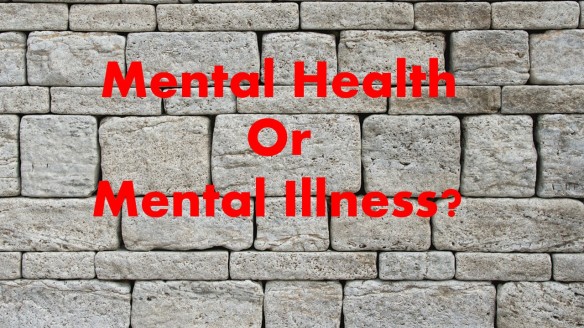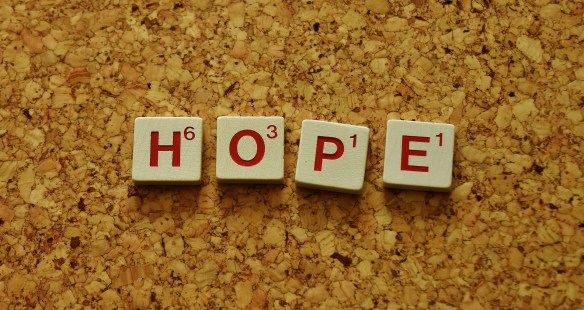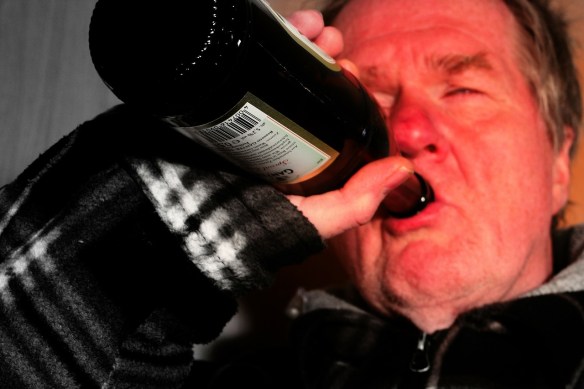By David Joel Miller, MS, Licensed Therapist & Licensed Counselor.
Mental health care is caught in a bind.
What are we to do about the mentally ill? Our systems of care are stuck on the very sharp points of a modern dilemma. Most of those care systems are set up to care for the sick. We assume that there are two kinds of people, the “normal” ones and the mentally ill ones. Despite all the evidence that across the lifespan the two groups are largely indistinguishable, our programs are primarily focused on, sometimes restricted to, treating the ill.
We have systems in place to treat the sick. Often these programs are poorly funded and access is limited to only the most severely impaired. Despite their inadequacies programs do exist. Unfortunately our systems of care aren’t always prepared for people getting well.
The traditional mental health treatment paradigm consists of identifying a problem that could respond to our available treatments. Give them meds, give them therapy, manage their lives for them. Sometimes the system expects to cure them, a few of them, and send them away.
Only we know that paradigm stopped working in physical health a long time ago. Most health problems, mental or physical, do not get cured. They are chronic. You don’t get cured of diabetes, you get your symptoms under control. Then if you are no longer critically ill we need to move you out of the treatment facility.
Mental health systems only treat the ill.
Despite much evidence that people with mental health and substance abuse disorders recover, we insist that if they are to continue to see the doctor they need to remain sick. If their current care does not meet “medical necessity:” then they are not eligible for services. Keeping someone well, supporting their wellness is just not in the program.
Once you “flip out” and try to kill yourself or others you are eligible for help. Until that time no services for you.
Preventive medicine has not yet reached mental health.
Repeated studies have demonstrated that for every one dollar we spend on substance use treatment we save seven dollars in incarcerations and criminal justice costs. But until you commit a crime and do your time you are not eligible for rehab.
Strength-based recovery works so no one pays for it.
Treatment plans begin with current symptoms. The assessment form may start off with a history of the present illness, not what life problems has this person had to overcome and what strengths have they been using so far.
The biased assumption of this approach is that there is somehow something wrong with this person. The possibility that life and its stressors have overwhelmed you rarely comes into play.
If you want treatment you need to stay chronically ill.
Generally, once the symptoms subside the client gets discharged. The recommendation is when you feel like killing yourself again, call us. What is missing is what can we do to help you get well. If you want help you need to stay sick. Get too healthy and your encouragement gets withdrawn.
The system perpetuates itself by encouraging people to think that they cannot and shouldn’t get better. Disability rather than being a temporary support has become an all-or-nothing program. Stay sick and we will help you. If you decide to get better you are on your own.
There are some exceptions To the stay-sick requirements.
I realize that there are some exceptions to this paradigm, that you need to be very, very mentally ill before you can get coverage for your mental health issues. Some non-profits try, a few governmental programs are designed to help people stay well and continue to have productive lives. But those few programs are the exceptions. They are constantly hampered because they need to find funding sources to pay for prevention and rehabilitation services. Most funding streams are only available to treat illness and to get help in these places you need to stay ill.
What is needed to improve mental health?
What is sorely needed in the mental health and the substance use disorder field is a seamless system of care. People need access to brief counseling when they are going through life’s difficulties before those problems derail their life.
We also need mental health systems that assume people will get better and can have a happy productive life. Those systems should be able to offer help and encouragement during the difficult times without requiring you to prove you are permanently mentally ill to qualify for treatment.
Most importantly, systems of care ought to emphasize helping people reach their own happy life goals rather than requiring them to stay sick if they want help. Episodic and preventative care needs to replace the current program of requiring people to prove they are seriously mentally ill and will promise to stay that way in order to receive help. Outcome measures need to focus less on how many severe symptoms you have and more on how you are progressing on having the best life possible.
Wellness and recovery needs to move from being a slogan to being a reality.
Staying connected with David Joel Miller
Seven David Joel Miller Books are available now!
My newest book is now available. It was my opportunity to try on a new genre. I’ve been working on this book for several years, but now seem like the right time to publish it.
Story Bureau is a thrilling Dystopian Post-Apocalyptic adventure in the Surviving the Apocalypse series.
Baldwin struggles to survive life in a post-apocalyptic world where the government controls everything.
As society collapses and his family gets plunged into poverty, Baldwin takes a job in the capital city, working for a government agency called the Story Bureau. He discovers the Story Bureau is not a benign news outlet but a sinister government plot to manipulate society.
Bumps on the Road of Life. Whether you struggle with anxiety, depression, low motivation, or addiction, you can recover. Bumps on the Road of Life is the story of how people get off track and how to get your life out of the ditch.
Dark Family Secrets: Doris wants to get her life back, but small-town prejudice could shatter her dreams.
Casino Robbery Arthur Mitchell escapes the trauma of watching his girlfriend die. But the killers know he’s a witness and want him dead.
Planned Accidents The second Arthur Mitchell and Plutus mystery.
Letters from the Dead: The third in the Arthur Mitchell mystery series.
What would you do if you found a letter to a detective describing a crime and you knew the writer and detective were dead, and you could be next?
Sasquatch. Three things about us, you should know. One, we have seen the past. Two, we’re trapped there. Three, I don’t know if we’ll ever get back to our own time.
For these and my upcoming books; please visit my Author Page – David Joel Miller
Want the latest blog posts as they publish? Subscribe to this blog.
For videos, see: Counselorssoapbox YouTube Video Channel








